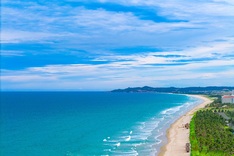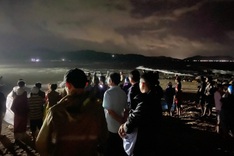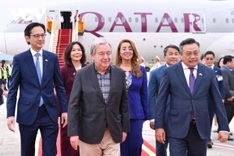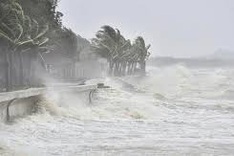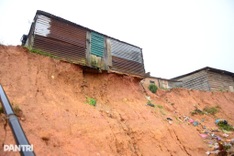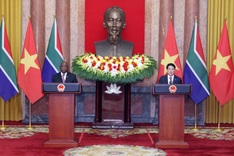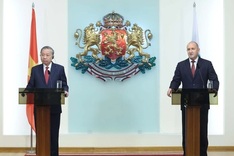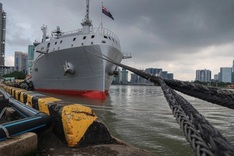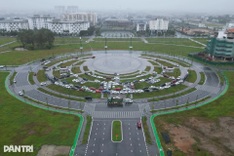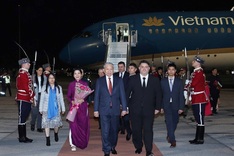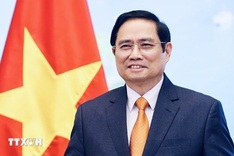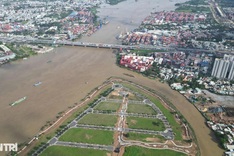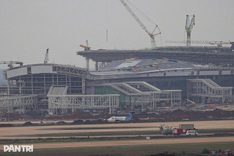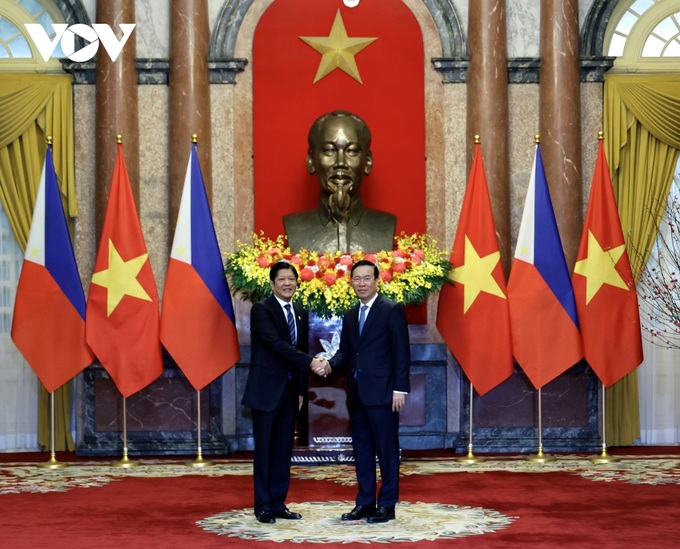
Vietnamese President Vo Van Thuong (R) and Philippine President Ferdinand Marcos Jr. shaking hands ahead of their talks in Hanoi on January 30.
During talks in Hanoi on January 30, Vietnamese President Vo Van Thuong and Philippine President Ferdinand Marcos Jr. who is in Hanoi for a State visit to Vietnam, agreed to further increase political-diplomatic cooperation through reciprocal visits and contacts. They also agreed to strengthen economic cooperation, striving to soon raise bilateral trade turnover to US$10 billion, by limiting the imposition of trade barriers and facilitating import and export of major products of both sides such as seafood, fruits and vegetables.
They vowed to make good use of opportunities from regional free trade agreements, encourage their businesses to invest in important fields such as processing technology, high-tech agriculture, infrastructure, oil and gas. They stressed the need to expand cooperation into new and important fields like digital economy, green economy, digital transformation, circular economy, and renewable energy, as well as enhancing the resilience of the supply chain.
Both sides also agreed to increase cooperation in responding to climate change, overcoming pollution, reducing carbon emissions, and treating plastic waste.
The two leaders highly appreciated the positive development of bilateral relations over the years, especially since the lifting of the relations to a strategic partnership in 2015. The two countries frequently maintain reciprocal visits and effectively deploy cooperation mechanisms. Economic cooperation remains a bright spot in bilateral relations. The Philippines is Vietnam’s largest rice consumer.
President Marcos Jr. thanked Vietnam for providing a stable and long-term source of rice for the Philippines, and appreciated the two sides signing a document on rice trade cooperation during his visit, contributing to ensuring food security and strengthening solidarity between the two countries. He also highly appreciated the Vietnamese community’s contributions to socio-economic development of the Philippines.
The two leaders agreed to promote security and defense cooperation, as well as cooperation in crime prevention and control, while emphasizing the importance of marine cooperation.
President Thuong proposed that the Philippines continue to treat Vietnamese fishermen humanely, soon extend the hotline agreement on fishing, and assist Vietnam in quickly removing the European Commission’s yellow card against Vietnamese seafood exported to Europe.
Both host and guest also agreed to enhance cooperation in other important fields, including education, culture, and tourism. They underlined the need to open more direct flights between the two countries, foster people-to-people exchanges, and promote the role of friendship organizations in strengthening mutual understanding.
Exchanging views on multilateral and regional cooperation, the two sides agreed to continue to regularly coordinate and support each other’s candidacies for international organizations. They concurred that both countries will support Laos in successfully fulfilling its 2024 ASEAN Chairmanship, and will coordinate with other ASEAN countries to maintain solidarity and unity in ASEAN.
President Marcos Jr. affirmed the Philippines’ support for Vietnam’s successful hosting of APEC Year 2027.
Regarding the East Sea issue, the two sides committed to maintaining and promoting peace, security, stability, safety and freedom of navigation and aviation. They called on all concerned parties to exercise restraint, not threaten or use force, fully respect diplomatic and legal processes, and resolve disputes by peaceful means, on the basis of international law, including the 1982 Convention on the Law of the Sea (UNCLOS).
On this occasion, President Marcos Jr. respectfully invited President Thuong to pay a state visit to the Philippines at an appropriate time, and the invitation was accepted with pleasure.
After the talks, the two sides issued a joint press statement and witnessed the exchange of cooperation documents between the two countries in the fields of agriculture, rice trade, maritime cooperation, and culture.


